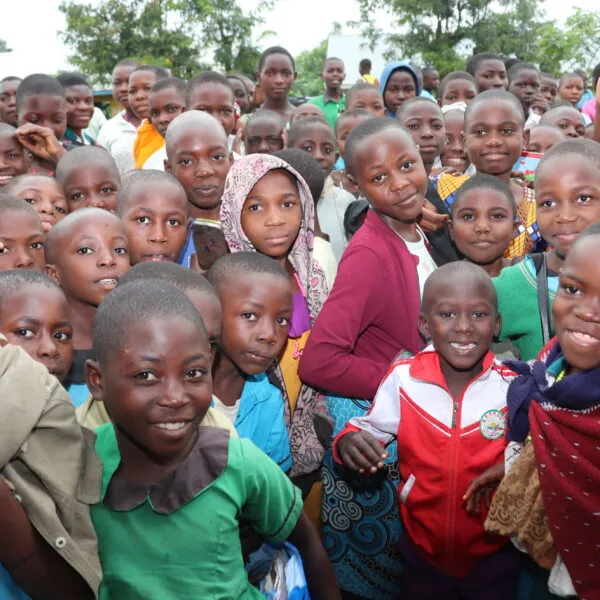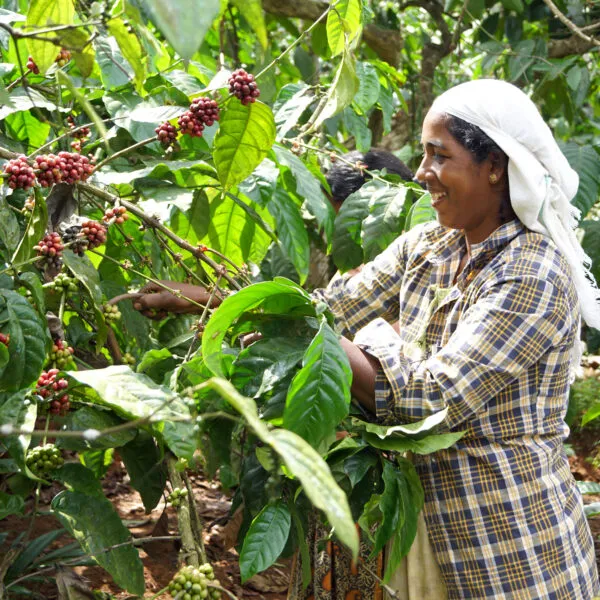The Rainforest Alliance has worked for more than 30 years to make agriculture more sustainable—and for us, the well-being of those who work on farms is central to that effort. That’s why we protect and promote the human rights of hundreds of thousands of farmworkers through our certification program, and of tens of thousands more in our community-level work. We also advocate with governments on passing and enforcing legislation that requires companies to follow human rights and environmental due diligence (HREDD) processes.
Through certification, landscape and community programs, tailored supply chain services, and advocacy, we are helping to protect and promote the rights of farmworkers around the world.
Sign up for useful tips to green your life and protect our planet.
Stopping forced labor, discrimination, and workplace violence and harassment
Poverty, systemic inequality, and a lack of legal protections can all leave agricultural workers vulnerable to forced labor, discrimination, and workplace violence and harassment.
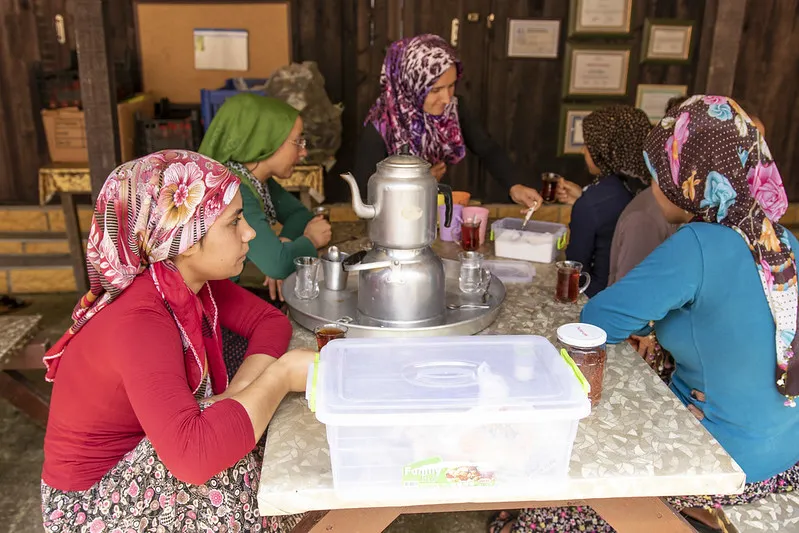
We’ve learned through many years of experience that simply prohibiting such human rights violations in our certification standard is not enough—a more thoughtful, holistic approach is needed to make substantive change. That’s why our certification program takes an assess-and-address approach, focusing on prevention, engagement, and improvement. As part of that approach, we require farms to set up committees to assess, monitor, and mitigate human rights risks and violations. In addition to establishing those assess-and-address committees, farms must form grievance and gender committees.
Sofia Nuru, a farm unit supervisor at the Green Coffee Agro-Industry in Ethiopia, said that recently formed committees have already changed the work culture on the farm. “We had never received such kind of training before. As a result, we were not aware of our rights or of the farm’s commitment to protect our rights.” A member of both the grievance committee and the assess-and-address committee, Nuru added: “I used to think of my boss yelling at me as a normal thing, but now I know that it is harassment—and I know where to report it. The committees are there to protect the rights of workers and I believe the committees will do that.”
Migrant workers are especially vulnerable to abuses, in part because they rely on labor brokers and agents who often charge a recruitment fee. Migrant workers can then find themselves far from home, in debt, with no means to flee. Our standard requires certificate holders to perform rigorous oversight of labor recruiters to ensure that workers are not exploited. Furthermore, all recruitment-related fees and costs must be paid by farms, not workers.
On the hazelnut farms we work with in Turkey, we are bolstering this certification requirement and others with a project to support the many migrant workers who arrive each summer for the harvest. Summer schools will offer migrant children a safe place to play and learn while parents are at work; trainings will inform workers of their rights; and village committees will work to improve housing for those who come to harvest.
Health, safety, housing, and living conditions
Protecting the health and safety of workers is fundamental to the sustainability of any farm. Certification requires farms to provide safe machinery, fire and emergency procedures, light and ventilation in worker buildings, as well as clean drinking water and adequate sanitary facilities for workers. Farms must also provide permanent workers with safe, clean, and decent living quarters.
Because agrochemicals pose a health risk to workers and harm nature, our certification program promotes manual or biological methods as the first line of defense against pests and diseases, and the harshest agrochemicals are not allowed at all. But when approved agrochemicals can’t be avoided, farms must train workers on how to safely handle these substances and provide personal protective equipment. A 2019 study by Wageningen University compared 13 Rainforest Alliance Certified banana farms to 16 non-certified farms in Colombia. Workers at certified farms were more likely to wear all their personal protective equipment. They also found that all certified farms surveyed had a designated occupational health professional, compared to only 19 percent of the non-certified farms.
Our certification program also requires farms to provide information on medical-leave policies as well as the medical services available locally to workers. A certified banana company in Ecuador went even further, providing mental health services for its workers through one of our initiatives. These mental health services included groups and individual sessions focused on addiction prevention, domestic violence, and work stress. This is just one example of how the Rainforest Alliance deploys multiple interventions at once to improve worker well-being.
Farmworker livelihoods
Across the tropics, farming communities face a daily struggle to cover life’s basic needs. The Rainforest Alliance certification program requires farms to pay workers at least the local minimum wage—but a minimum wage does not necessarily provide a decent standard of living. That’s why our certification program goes further, using country-specific benchmarks to help farms make progress toward paying a living wage. The Rainforest Alliance defines a living wage as payment for a standard workweek that allows workers to cover their families’ basic expenses, including food, water, housing, education, health care, transportation, and clothing, with a little extra to cover unexpected events. (This is the definition set out by the Global Living Wage Coalition, which the Rainforest Alliance co-founded and co-chairs.)
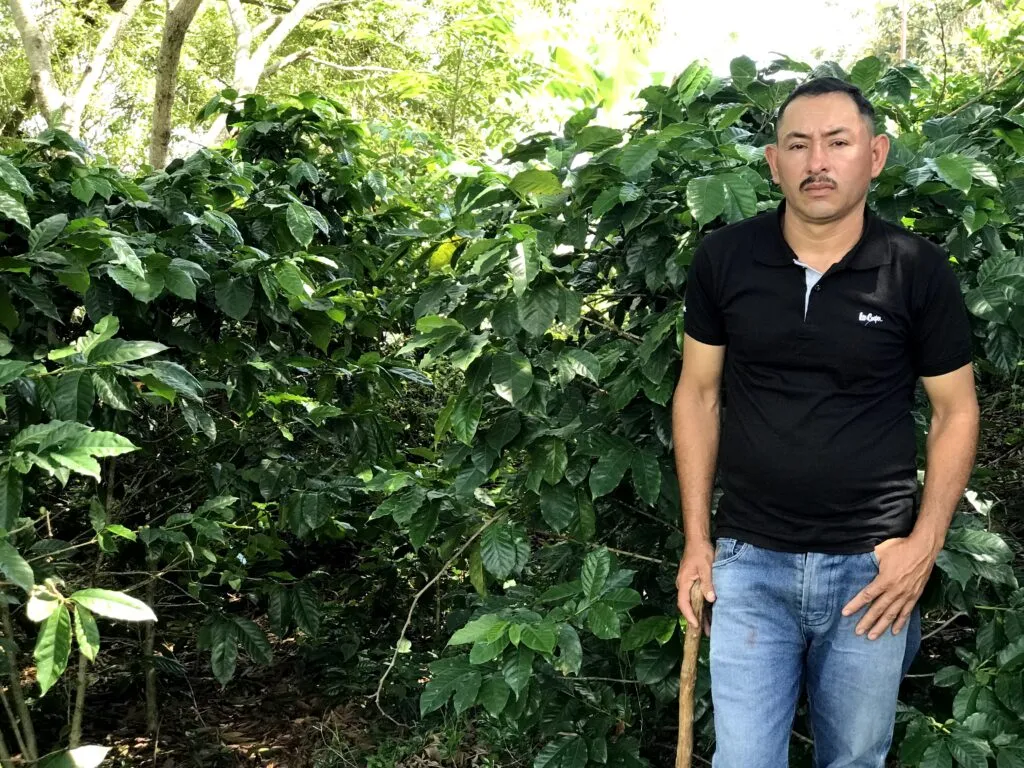
Only eight years ago, Enemias Espinoza of Ocotepeque, Honduras, faced such intense economic desperation that he risked his life by jumping aboard a moving train heading to the US in the hopes of finding work there. After being turned away at the border, he spent three difficult months back in San Marcos, Ocotepeque, without employment with which to support his wife and three kids. That’s when he landed a job on a local coffee farm that’s part of the certified UNIOCASMO farm group. Now a foreman, Espinoza says his wages—higher than the local minimum wage—have allowed him to buy his own small coffee farm. And in his role as foreman, he says, he can always find and keep staff because of the good wages and treatment on this certified coffee farm.
In a market that leaves producers bearing a disproportionate amount of risk, as well as the cost of implementing sustainability measures, many small-scale farmers struggle to earn a living income and therefore, to pay their workers a decent wage. To spread the burden more fairly, the Rainforest Alliance’s certification program requires companies to make a cash or in-kind investment to help with sustainability costs, as well as an additional payment intended to reward farmers for using more sustainable practices.
Freedom of association and collective bargaining
Freedom of association and collective bargaining are fundamental human rights. For workers to be able to protect themselves from labor abuses, voice grievances, and affect positive change in their working conditions and pay, they must be able to speak up and organize themselves without fear of retaliation. Certified farms are required to inform workers of this right and to provide space to exercise it.
The Rainforest Alliance is also piloting a technology in Sri Lanka, Brazil, and Cote d’Ivoire that allows workers to anonymously report concerns through a mobile device. This direct worker-reporting platform is designed for all literacy levels, and workers receive a small monetary incentive to participate.
Working toward equality for women farmworkers
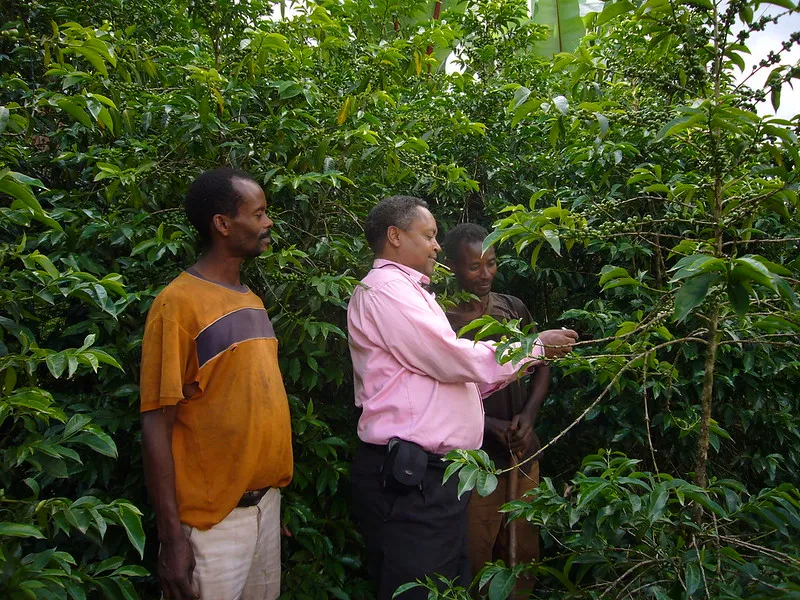
Women farmworkers often lack access to decision-making, training programs, resources, and opportunities. They can also be vulnerable to harassment and violence—in part because women are usually workers, whereas managers are usually men. Our certification program gives farms and companies tools to identify and address gaps in training and opportunities, and to prevent gender-based violence and harassment. It also requires the appointment of an individual or committee responsible for addressing gender equality and actively promoting women’s advancement.
Participating in a gender committee at the Limmu Kossa Coffee Estate in Ethiopia has greatly changed foreman Geleta Haile’s outlook on the role of women. He’s worked on this farm for 17 years, but has not been able to marry, he said, because his family is poor and depends on his income. “I used to believe that if my sisters got married when they were 18, it would ease my burden. After I received training on gender, I learned that girls’ education is important, and that girls also can reach wherever they want if they set their mind to it.
“So, I started encouraging my sisters to pursue their education rather than getting married.” He added, “I convinced myself to make some sacrifices for a short time to make my sister’s future bright.”


